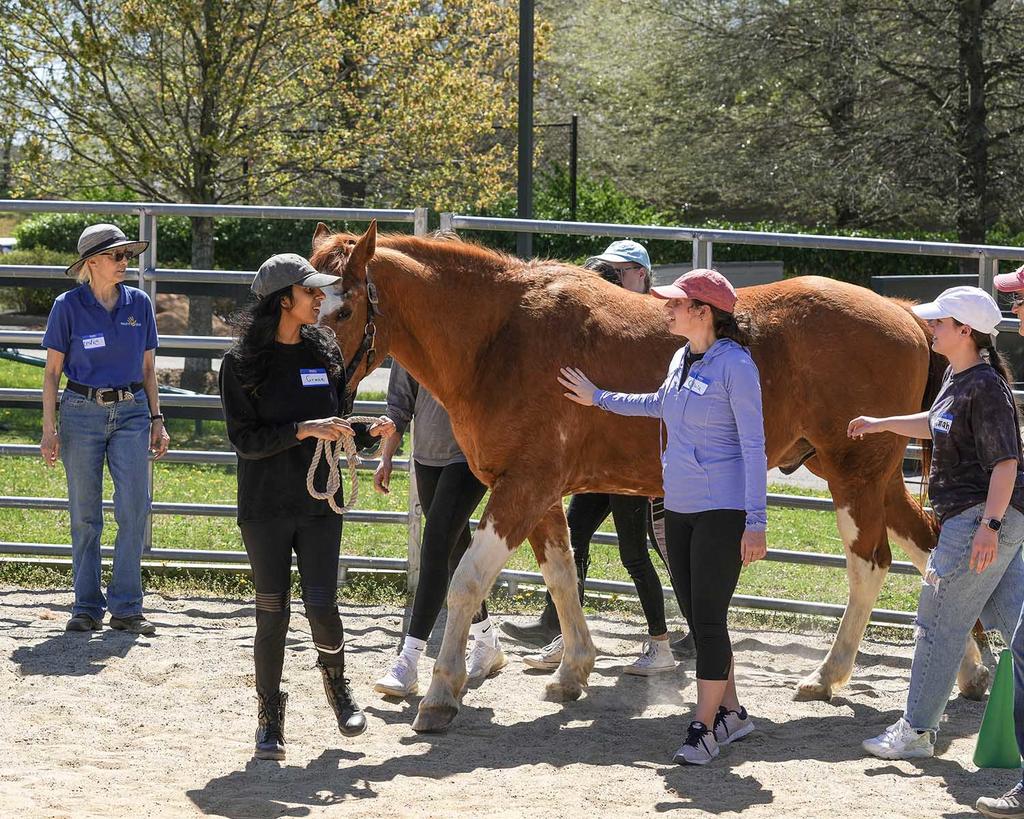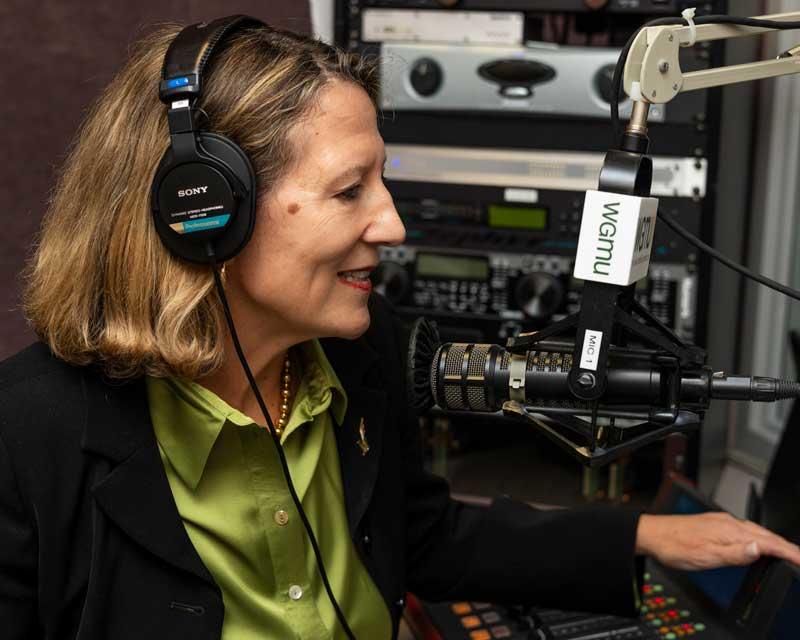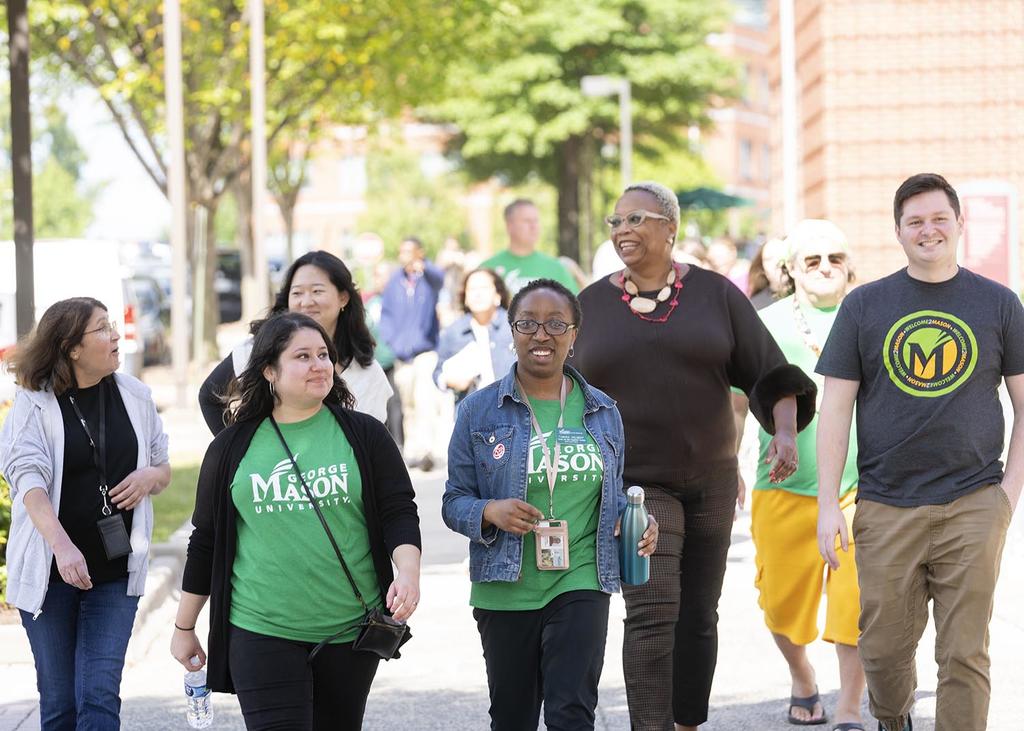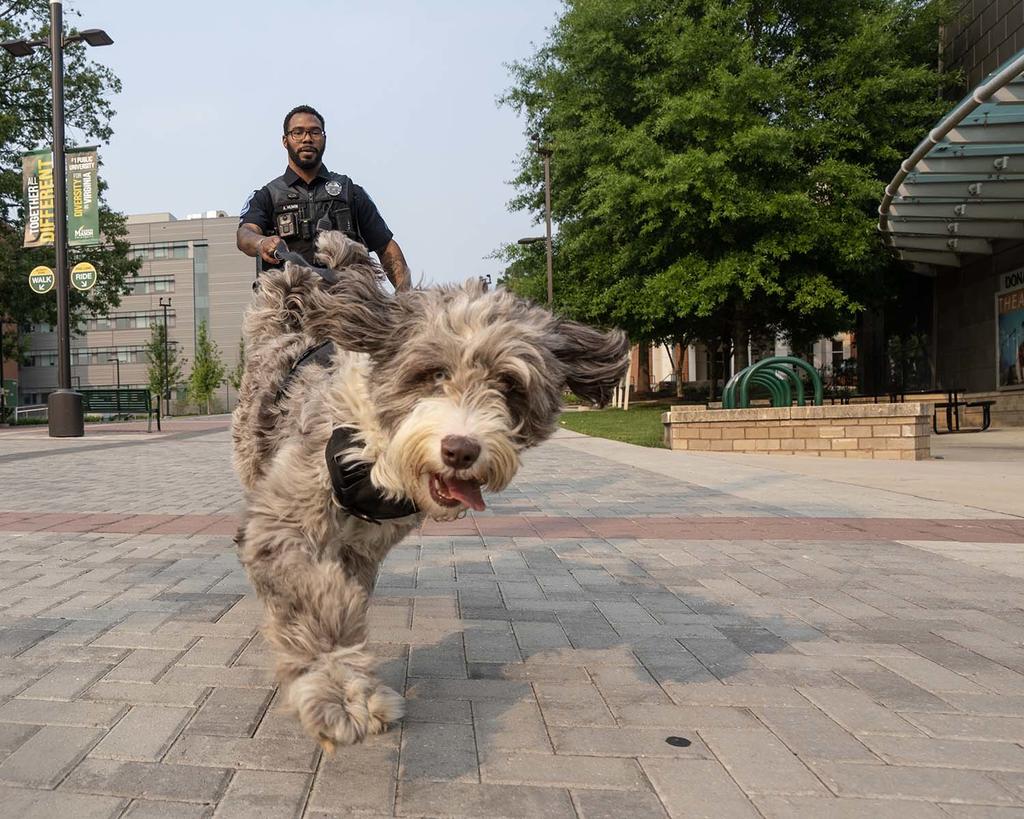George Mason University prioritizes health and wellness, ensuring that students, staff, and faculty are healthy in mind, body, and spirit. We are committed to Everyone Thriving Together.


Mental Health Awareness Month Events
May 2, 2024 | Food for Thoughts: Mason’s Center for Community Mental Health 7th Annual Fundraiser | 6 pm – 9 pm | Tickets
Outdoor Yoga https://ularlington.gmu.edu/event/yoga/
Wednesdays through May 15, 2024 | Outdoor Yogo at Mason Square Plaza | 6 p.m.-7 p.m.
Good Morning Washington features George Mason University Center for Community Mental Health Food for Thought Gala
George Mason University's Center for Community Mental Health Food for Thought event on May 2 raised $177,000 for the center to continue to provide critical services to the community. Proceeds will help provide free community health programs, emotional support, low-cost therapies and testing services, and family psychological support. Watch the segment on WJLA Good Morning Washington.

GMU's Center for Community Mental Health raised $177k
Learn more about the Center for Community Mental Health.


Patriots Thriving Together. Learn more





Ideas for Practicing Mindfulness in College
- Take a deep breath in … release. Take 30 seconds to acknowledge all the things you are grateful for right now. It can be your friends, family, access to study, professors, nature, healthy body, ability to breathe freely, access to food and water, or other blessings.
- When you walk around campus, instead of repeating prior conversations or thinking about your next class, look around yourself and observe the trees, the people, the buildings, and the walkway. See how the breeze feels on your skin, how the ground feels when you walk, how your posture feels, what pace your arms are swinging in, and more.
- Note your thoughts or feelings as soon as something stressful arises – maybe at the back of your notebook or in a separate small journal just for writing down your feelings.
- Do a nice stretch (think of a cute dog just waking up from sleep), straighten out your arms, rotate your ankle, move your neck from side to side, take a deep breath, and release!
- When you walk, or even when you want to take a 10-second break while working/studying, repeat the mantra “Life is working for me” as many times as you like, slowly.
(Excerpt from Thriving Together Series from the Center for the Advancement of Well-Being
Resources for Students
TimelyCare, a 24/7 mental health system of support that augments Mason's existing student health offerings with both on-demand and scheduled counseling, health coaching, and more.
Other mental health support systems include Counseling and Professional Services (CAPS), providing in-person and virtual free and confidential mental health services; and MasonCARES Suicide Prevention Program, a two-hour gatekeeping program designed to train faculty, staff, and students in how to respond to individuals who may be experiencing distress and suicidal thoughts.
Related Stories
- March 22, 2024
- February 23, 2024
- November 13, 2023
- October 31, 2023
- October 30, 2023
